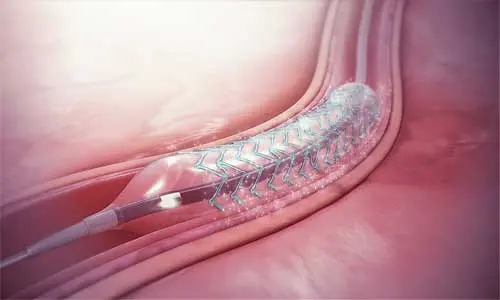- Home
- Medical news & Guidelines
- Anesthesiology
- Cardiology and CTVS
- Critical Care
- Dentistry
- Dermatology
- Diabetes and Endocrinology
- ENT
- Gastroenterology
- Medicine
- Nephrology
- Neurology
- Obstretics-Gynaecology
- Oncology
- Ophthalmology
- Orthopaedics
- Pediatrics-Neonatology
- Psychiatry
- Pulmonology
- Radiology
- Surgery
- Urology
- Laboratory Medicine
- Diet
- Nursing
- Paramedical
- Physiotherapy
- Health news
- Fact Check
- Bone Health Fact Check
- Brain Health Fact Check
- Cancer Related Fact Check
- Child Care Fact Check
- Dental and oral health fact check
- Diabetes and metabolic health fact check
- Diet and Nutrition Fact Check
- Eye and ENT Care Fact Check
- Fitness fact check
- Gut health fact check
- Heart health fact check
- Kidney health fact check
- Medical education fact check
- Men's health fact check
- Respiratory fact check
- Skin and hair care fact check
- Vaccine and Immunization fact check
- Women's health fact check
- AYUSH
- State News
- Andaman and Nicobar Islands
- Andhra Pradesh
- Arunachal Pradesh
- Assam
- Bihar
- Chandigarh
- Chattisgarh
- Dadra and Nagar Haveli
- Daman and Diu
- Delhi
- Goa
- Gujarat
- Haryana
- Himachal Pradesh
- Jammu & Kashmir
- Jharkhand
- Karnataka
- Kerala
- Ladakh
- Lakshadweep
- Madhya Pradesh
- Maharashtra
- Manipur
- Meghalaya
- Mizoram
- Nagaland
- Odisha
- Puducherry
- Punjab
- Rajasthan
- Sikkim
- Tamil Nadu
- Telangana
- Tripura
- Uttar Pradesh
- Uttrakhand
- West Bengal
- Medical Education
- Industry
Amphilimus-eluting stents tied to less target lesion failure in diabetics undergoing PCI: SUGAR Trial

Spain: Amphilimus-eluting stents (AES) are superior to zotarolimus-eluting stents (ZES) with regards to target lesion and target vessel failure composite outcomes at 1 year in diabetes patients undergoing PCI, show results from the SUGAR trial. SUGAR is a randomized, controlled, multicenter trial conducted exclusively in patients with diabetes mellitus (DM) and with minimum exclusion criteria,
The findings of the study were presented at the TCT 2021, the 33rd annual scientific symposium of the Cardiovascular Research Foundation (CRF), and simultaneously published in the European Heart Journal.
Diabetes patients are known to be at higher risk of adverse events after percutaneous coronary intervention (PCI). Also, there seemed no differences in outcomes between most contemporary drug-eluting stents. The Cre8 EVO stent releases a formulation of sirolimus with an amphiphilic carrier from laser-dug wells, and has shown clinical benefits in diabetes.
Against the above background, Rafael Romaguera, Hospital de Bellvitge - IDIBELL, University of Barcelona, Barcelona, Spain, and colleagues aimed to compare Cre8 EVO stents to Resolute Onyx stents (a contemporary polymer-based zotarolimus-eluting stent) in patients with diabetes.
For this purpose, the researchers designed a investigator-initiated, randomized, controlled, assessor-blinded trial at 23 sites in Spain. It included patients who had diabetes and required PCI. A total of 1175 patients were randomly assigned (1:1) to receive Cre8 EVO or Resolute Onyx stents.
The primary endpoint was target-lesion failure, defined as a composite of cardiac death, target vessel myocardial infarction, and clinically indicated target-lesion revascularization at 1-year follow-up. The trial had a non-inferiority design with a 4% margin for the primary endpoint. A superiority analysis was planned if non-inferiority was confirmed.
Based on the study, the researchers found the following:
- There were 106 primary events, 42 (7.2%) in the Cre8 EVO group and 64 (10.9%) in the Resolute Onyx group [hazard ratio (HR) 0.65].
- Among the secondary endpoints, Cre8 EVO stents had significantly lower rate than Resolute Onyx stents of target-vessel failure (7.5% vs 11.1%, HR 0.67).
- Probable or definite stent thrombosis and all-cause death were not significantly different between group.
"Cre8 EVO stents were non-inferior to Resolute Onyx stents in diabetes patietns with regard to target-lesion failure composite outcome," wrote the authors. "An exploratory analysis for superiority at 1 year suggests that the Cre8 EVO stents might be superior to Resolute Onyx stents with regard to the same outcome."
Reference:
Rafael Romaguera, MD, Pablo Salinas, MD, Josep Gomez-Lara, MD, PhD, Salvatore Brugaletta, MD, PhD, Antonio Gómez-Menchero, MD, Miguel A Romero, MD, Sergio García-Blas, MD, Raymundo Ocaranza, MD, Pascual Bordes, MD, Marcelo Jiménez Kockar, MD, Neus Salvatella, MD, Victor A Jiménez-Díaz, MD, Mar Alameda, MD, Ramiro Trillo, MD, Dae Hyun Lee, MD, Pedro Martín, MD, María López-Benito, MD, Alfonso Freites, MD, Virginia Pascual-Tejerino, MD, Felipe Hernández-Hernández, MD, Bruno García del Blanco, MD, Mohsen Mohandes, MD, Francisco Bosa, MD, Eduardo Pinar, MD, Gerard Roura, MD, PhD, Josep Comin-Colet, MD, PhD, Antonio Fernández-Ortiz, MD, PhD, Carlos Macaya, MD, PhD, Xavier Rossello, MD, PhD, Manel Sabate, MD, PhD, Stuart J Pocock, PhD, Joan A Gómez-Hospital, MD, PhD, the SUGAR trial Investigators, Amphilimus- versus zotarolimus-eluting stents in patients with diabetes mellitus and coronary artery disease (SUGAR trial), European Heart Journal, 2021;, ehab790, https://doi.org/10.1093/eurheartj/ehab790
Dr Kamal Kant Kohli-MBBS, DTCD- a chest specialist with more than 30 years of practice and a flair for writing clinical articles, Dr Kamal Kant Kohli joined Medical Dialogues as a Chief Editor of Medical News. Besides writing articles, as an editor, he proofreads and verifies all the medical content published on Medical Dialogues including those coming from journals, studies,medical conferences,guidelines etc. Email: drkohli@medicaldialogues.in. Contact no. 011-43720751


